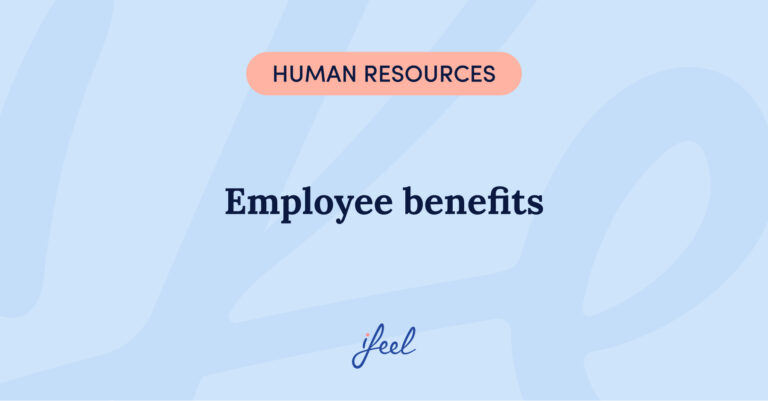Effective management of business risks in insurance is critical to the success and sustainability of large international corporations. For leaders, executives and HR managers of large enterprises, understanding and addressing these risks is a crucial task that requires a strategic and well-informed approach.
This approach is vital because the risk landscape and trends in employee insurance are constantly evolving. New threats, such as sophisticated cyber-attacks or disruptions in the global supply chain, can have devastating impacts if not managed properly.
In this article, we will delve into the critical aspects that companies must consider when developing their corporate risk management strategies and selecting the most appropriate business insurance policies. We will explore how a comprehensive approach to risk identification, assessment, and mitigation can not only protect the enterprise’s assets but also boost its growth and competitiveness in the global marketplace.
Importance of analysing business risks in insurance
Before delving into the specifics of insurance coverage for enterprises, it is crucial to emphasise the need for thorough risk analysis. This process involves a detailed assessment of all areas of potential vulnerability within the organisation.
This analysis process is essential because today’s business world faces various increasingly complex and interconnected risks. Beyond traditional risks such as fire or property damage, enterprises must now navigate much more complicated terrain. Privacy and cybersecurity risks, human capital challenges, environmental and pollution concerns, and vulnerabilities in the global supply chain have become concerns for organisations of all sizes.
Furthermore, these risks do not operate in isolation; they are often interrelated and can have cascading effects throughout the organisation. For example, a cyberattack could not only compromise sensitive data, but also disrupt operations, damage the company’s reputation and potentially result in significant financial losses. That is why enterprises must take a holistic approach to understanding and addressing these multifaceted risks.
Main business risks in insurance
To implement an effective corporate risk management strategy, it is essential to identify and prioritise the most relevant risks for your organisation. Some of the most common risks that enterprises should consider include:
1. Cyber risks
In the digital age, data protection has become an absolute priority. Data breaches can result in direct financial losses, significant reputational damage and substantial regulatory penalties. That is why the regulatory landscape around data protection is becoming increasingly strict, with regulations such as the GDPR in Europe and the CCPA in California.
Thus, to mitigate these business risks in insurance, enterprises must implement robust cybersecurity measures, including intrusion detection and prevention systems, data encryption, and multi-factor authentication. Equally important is regular employee training in security best practices.
However, even with the best preventive measures, the risk can never be completely eliminated. Therefore, enterprises should consider taking out specific cyber insurance that can cover the costs associated with data breaches, including customer notifications, credit monitoring services, and possible legal claims.
2. Risks related to human capital
Employees are an enterprise’s most valuable asset, but they can also represent a significant risk if not managed properly. Occupational health and safety, the risks of discrimination and harassment, and the potential loss of key employees are critical areas that require attention.
That is why enterprises must invest in robust security programmes, develop clear policies against discrimination and harassment, and establish talent retention and succession planning programmes. Regular employee training in these areas is critical to mitigating these risks.
From an insurance perspective, enterprises should consider coverages such as employer liability, business medical, workplace practices, and key person insurance. These products can provide financial protection against employee claims, legal costs associated with employment litigation, and economic losses resulting from losing key employees.
“Our partnership with ifeel has catalysed a positive change in the mental well-being debate at SCOR. Since implementing ifeel’s solution, we have seen more open discussion about mental health within our organisation.”
— Sabrina Kruse, Head of HR EMEA & Group Head of Diversity, Inclusion and Engagement at SCOR, an ifeel partner company.
3. Environmental and pollution risks
Growing awareness of climate change and sustainability has spotlighted environmental risks. Enterprises face challenges such as accidental pollution, compliance with increasingly stringent environmental regulations, and the impacts of climate change on their operations.
To address these business risks in insurance, enterprises must implement rigorous hazardous materials handling protocols, keep up with regulatory changes, and develop strategies for adapting to climate change. They must also conduct regular environmental risk assessments and develop emergency response plans.
In this sense, environmental liability insurance has become increasingly important, covering clean-up costs, third-party damages and legal costs associated with pollution incidents. In addition, innovative products are emerging to address the specific risks of climate change.
4. Global supply chain risks
In an interconnected world, disruptions in the supply chain can have devastating effects. Geopolitical risks, dependence on single suppliers, and transportation and logistics challenges are growing concerns for global enterprises.
To mitigate business risks in insurance, enterprises must diversify their suppliers, consider multiple routes and modes of transportation, and potentially increase their inventory levels. It is crucial to develop contingency plans for possible disruptions and closely monitor the geopolitical situation in their operating regions.
Business interruption insurance and supply chain-specific insurance can provide financial protection against losses resulting from supply chain disruptions, including key supplier failures or transportation disruptions.
It is important to note that the relevance of these risks can vary significantly depending on the sector and the geographical location of the enterprise. For example, a multinational technology company might prioritise cyber risks, while a manufacturing company might focus more on business interruption and environmental hazards.
Selecting appropriate business insurance policies
Effective risk management requires a comprehensive and proactive approach. This starts with regular and thorough risk assessments that identify both current and emerging risks. It is crucial to involve all relevant stakeholders in this process.
Once the main risks have been identified, the next crucial step is to select the business insurance policies that best suit your company’s specific needs. For this reason, it is essential to work with experienced insurance brokers who understand the complexities of your industry and can negotiate favourable terms with insurers.
Here’s the information in table format:
| Type of risk | Recommended insurance Policy | Main coverage |
|---|---|---|
| Cybernetic | Cyber Risk Insurance | Losses due to computer attacks, data theft |
| Business Interruption | Business Interruption Insurance | Loss of income due to unforeseen events |
| Civil Liability | General Civil Liability Insurance | Damage to third parties caused by business activity |
| Environmental | Environmental Liability Insurance | Clean-up costs and damage due to pollution |
| Geopolitical | Political Risk Insurance | Losses due to political or economic instability in countries of operation |
The importance of business loss prevention
While having the right insurance policies is essential, accurate corporate risk management goes beyond simple risk transfer. Business loss prevention should be a priority in any comprehensive risk management strategy.
Implementing prevention programmes can reduce the likelihood of incidents and insurance costs. According to the EIOPA, the continuous rise in prices is another economic factor most affecting the insurance sector.
This integral approach to well-being and prevention can also be applied to the management of business risks in insurance, promoting a work culture that prioritises health, safety and resilience at all levels.
Regularly review and update risk management strategies
Business risks in insurance are constantly evolving, influenced by factors such as regulatory changes, technological advances and unforeseen global events. It is therefore crucial that enterprises regularly review and update their risk management strategies, as well as their insurance coverage.
A comprehensive review is recommended at least once a year or more frequently if significant changes occur in the enterprise’s structure or operations. This ensures that the business’s insurance coverage remains adequate and that the organisation is prepared to face new and emerging risks.

Technology at the service of insurers
At ifeel, we know that enhancing customer experience in insurance is a multifaceted goal that requires a comprehensive approach. This approach not only addresses the current needs of consumers, but also positions insurers as leaders in innovation and comprehensive customer care, thus ensuring their relevance in the sector’s future.
To this end, it is timely for insurers to rely on experts to ensure that their product remains at the cutting edge. To assist in this process, ifeel has developed a mental well-being solution for insurers to help insurers increase accessibility and reduce mental health claim costs.
Thanks to this service, insurers can receive personalised, data-driven advice on the most effective measures to detect mental health problems in their policyholders, and accurately understand the users’ needs and respond appropriately to their claims, thanks to our innovative triage system.
This approach helps insurers provide continuous and adaptive support, improving customer satisfaction and loyalty. In addition, this solution helps reduce the frequency and severity of mental health-related claims by optimising risk management.
Clients such as SCOR, AXA, and Femi Connecting Healthcare already rely on our services, which improve the quality of life of their policyholders and increase their organisations’ operational efficiency.
We hope you found this article on business risks in insurance interesting. If you would like to learn more about our mental well-being solution for insurers, simply request it, and we will contact your team as soon as possible.











